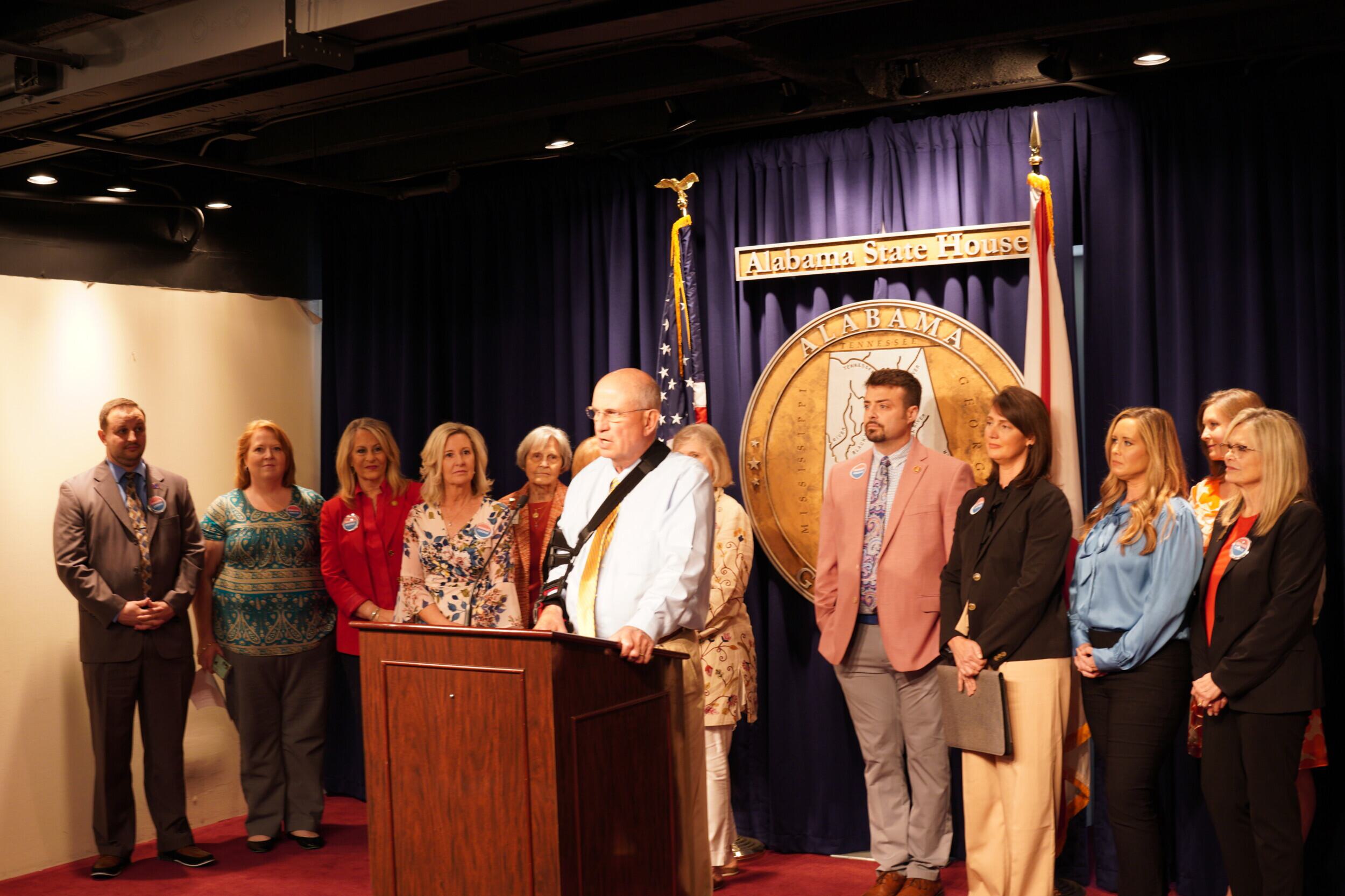MONTGOMERY — The long-awaited Parental Rights in Children's Education (PRICE) Act, which would offer comprehensive school choice in Alabama, has been filed in the Alabama Legislature.
The PRICE Act operates similarly to bills passed in other states by creating Educational Savings Accounts (ESAs).
The Senate version of the bill, Senate Bill 202 (SB202), has been introduced by State Sen. Larry Stutts (R-Tuscumbia). State Rep. Ernie Yarbrough is carrying House Bill 295 (HB295) in the House.
Stutts and Yarbrough joined State Auditor Andrew Sorrell and representatives from the Alabama Policy Institute (API) and Eagle Forum of Alabama (EFA) in introducing the legislation, stressing the importance of furthering choice in the state.
"The issue of school choice has been around for a long time," Stutts said. "A lot of other states are making moves in that direction, and I am very pleased to say that we have what I think is an outstanding bill about school choice."
The bill allows parents to apply for Educational Savings Accounts (ESAs) for their children. Several states are enacting universal ESA programs as they provide the most flexibility. Funds provided through vouchers and tax credit scholarships can only be used for tuition and fees, but ESA funds can be used for many education-related expenses.
Yarbrough, calling on his experience as a child in a rural county, stressed the importance of school choice and the positive influence ESAs could have on school quality.
"School choice is first and foremost about giving parents a voice," Yarbrough said. "It's about putting their hands on the steering wheel of the future of their children. It's also about strengthening the organic relationship between the school and the parent. It's also about giving the free market an influence. In America, we love the free market. We love capitalism and the idea that the free market and getting people involved helps drive quality up and costs down."
"The state portion, which is approximately $7,000, would be given to set up an [ESA] for students," said EFA Chairwoman Becky Gerritson. "Those funds that were not used completely in that year, that could be used for private school, homeschool, online schooling, private tutors, they can be rolled over and used the following year, and that can continue on. Once a child graduates, first, they don't get any more money into their [ESA]; they have until they're 21 years old to use the funds."
A 13-person advisory board would manage the ESA program through the Department of Revenue.
Alabama House Speaker Nathaniel Ledbetter (R-Rainsville) and Senate Pro Tem. Greg Reed have downplayed the possibility of a full school choice option passing the legislature this year.
Despite those prognostications, Stutts foresees broad support for the bill due to its merits.
"Of course, a lot of my Senate colleagues have not read the bill yet," Stutts said. "… So as we file the bill, more members in both bodies have access to the bill, see it working through the committee process, I expect broad support. As Becky [Gerritson] said, the bill is fundamentally about funding, but it's also fundamentally about freedom and parent's choice."
He continued, "It's really hard for me, and I know I'm the sponsor, and I'm biased, but it's really hard for me to see how anybody can be against either one of those concepts; giving parents freedom and raising the standards of education through competition."
Several lawmakers have also expressed concerns over passing school choice due to the fiscal impact and lack of options in more rural areas.
Both Yarbrough and Stutts pulled from their experience growing up in rural counties, claiming school choice would elevate those areas that have minimal options with alternative schooling.
"Don't ever undersell the power of the free market and the American initiative and the American dream," Yarbrough said. "There are few things that are far more powerful to engage grassroots constituents than their children. So, I think we have an opportunity to watch something really special unfold."
Stutts also said ESAs would improve rural schools, especially when parents could take the EFA dollars to start a local school, school online or homeschool.
"There are 400 non-public schools or so in the state, and a lot of children that are already being homeschooled, and this will provide additional resources for them," Stutts said. "You know, the argument that in some of the more rural areas, there might not be a private school there, but again, there are 400 scattered around that state, so most areas have one within an easy commute. But my contention would be that, if you have a poor performing school and now the parents have the ability to take some money, they can afford to start one."
To connect with the author of this story or to comment, email craig.monger@1819news.com.
Don't miss out! Subscribe to our newsletter and get our top stories every weekday morning.










